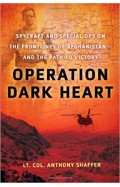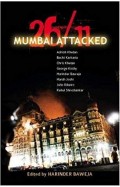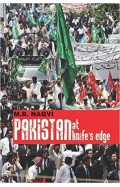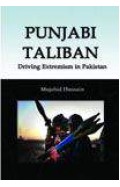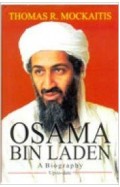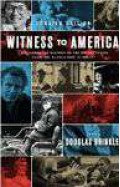The First World War
By: Martin Gilbert
-
Rs 3,996.00
- Rs 4,995.00
- 20%
You save Rs 999.00.
Due to constant currency fluctuation, prices are subject to change with or without notice.
We are offering a high discount due to slightly damage.
It was to be the war to end all wars, and it began at 11.15 on the morning of June 28, 1914, in an outpost of the Austro-Hungarian Empire called Sarajevo. It would end officially almost five years later. Unoffically, it has never ended: The horrors we live with today were born in the First World War. It left millions - civilians and soldiers - maimed or dead. And it left us with new technologies of death: tanks, planes, and submarines; reliable rapid-fire machine guns, poison gas and chemical warfare. It introduced us to unrestricted war on civilians and mistreatment of prisoners. Most of all, it changed our world. In its wake, empires toppled, monarchies fell, whole populations lost their national indentities as political systems and geographic boundaries relaligned. Instabilities were institutionalised, enmities enshrined. Manners, mores, codes of behaviour, literature, education and class distinctions - all underwent a vast sea change. In all these ways, the twentieth century can be said to have been born on the morning of June 28, 1914.
We are offering a high discount due to slightly damage.
It was to be the war to end all wars, and it began at 11.15 on the morning of June 28, 1914, in an outpost of the Austro-Hungarian Empire called Sarajevo. It would end officially almost five years later. Unoffically, it has never ended: The horrors we live with today were born in the First World War. It left millions - civilians and soldiers - maimed or dead. And it left us with new technologies of death: tanks, planes, and submarines; reliable rapid-fire machine guns, poison gas and chemical warfare. It introduced us to unrestricted war on civilians and mistreatment of prisoners. Most of all, it changed our world. In its wake, empires toppled, monarchies fell, whole populations lost their national indentities as political systems and geographic boundaries relaligned. Instabilities were institutionalised, enmities enshrined. Manners, mores, codes of behaviour, literature, education and class distinctions - all underwent a vast sea change. In all these ways, the twentieth century can be said to have been born on the morning of June 28, 1914.
A History of the Twentieth Century: The Concise Edition of the Acclaimed World History
By: Martin Gilbert
Rs 2,726.50 Rs 3,895.00 Ex Tax :Rs 2,726.50
The Second World War - A Complete History
By: Martin Gilbert
Rs 4,495.50 Rs 4,995.00 Ex Tax :Rs 4,495.50
The First World War: A Complete History
By: Martin Gilbert
Rs 4,495.50 Rs 4,995.00 Ex Tax :Rs 4,495.50
Zubin Mehta: A Musical Journey (An Authorized Biography)
By: VOID - Bakhtiar K. Dadabhoy
Rs 630.00 Rs 1,050.00 Ex Tax :Rs 630.00
Myths Illusions and Peace: Finding a New Direction for America in the Middle East
By: Dennis Ross
Rs 985.50 Rs 1,095.00 Ex Tax :Rs 985.50
Operation Dark Heart: Spycraft And Special Ops On The Frontlines Of Afghanistan And The Path To Victory
By: Anthony Shaffer
Rs 2,025.00 Rs 2,250.00 Ex Tax :Rs 2,025.00
Anna Hazare: The Face Of Indias Fight Against Corruption
By: Pradeep Thakur
Rs 270.00 Rs 300.00 Ex Tax :Rs 270.00
How To Win A Cosmic War God Globalization And The End Of War
By: Reza Aslan
Rs 625.50 Rs 695.00 Ex Tax :Rs 625.50
Witness To America: A Documentary History Of The United States From The Revolution To Today
By: Douglas Brinkley
Rs 4,495.50 Rs 4,995.00 Ex Tax :Rs 4,495.50
No similar books from this author available at the moment.
No recently viewed books available at the moment.
Zubin Mehta: A Musical Journey (An Authorized Biography)
By: VOID - Bakhtiar K. Dadabhoy
Rs 630.00 Rs 1,050.00 Ex Tax :Rs 630.00
A History of the Twentieth Century: The Concise Edition of the Acclaimed World History
By: Martin Gilbert
Rs 2,726.50 Rs 3,895.00 Ex Tax :Rs 2,726.50
The Second World War - A Complete History
By: Martin Gilbert
Rs 4,495.50 Rs 4,995.00 Ex Tax :Rs 4,495.50
The First World War: A Complete History
By: Martin Gilbert
Rs 4,495.50 Rs 4,995.00 Ex Tax :Rs 4,495.50













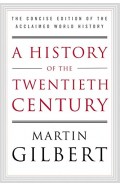
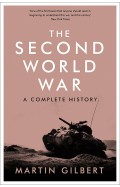
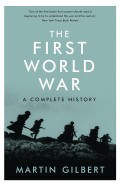

-120x187.jpg?q6)






